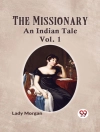Long hailed as one of the greatest novels of the 20th century, Joseph Conrad’s tale of one man’s descent into the mysterious and deadly Congo jungle to find a messianic ivory trader is a journey into the depths of man’s own greed and quest for power. Marlow, our narrator, relates his story of his slow upriver quest to meet the strange and enigmatic Kurtz, who lives isolated in the jungle and is revered by the natives he exploits. An unflinching look at the contrast (and similarities) between the so-called ‘civilized’ and ‘primitive’ worlds, Conrad’s novel has become a classic novella, regularly included on any list of the finest books of the past century.
Sobre el autor
Joseph Conrad was born Józef Teodor Konrad Korzeniowski on December 3, 1857 in Stolen Lands, Ukraine. The son of Polish writer and political activist Apollo Korzeniowki, Conrad had a stormy upbringing, constantly moving from place to place with his family who, due to Apollo’s struggles against the oppressive Russian Empire, were under constant pressure to to evade the authorities.
Eventually striving for a career at sea, Conrad traveled to Marsielle, France in 1874 to become a merchant marine. Over the next twenty years, Conrad served as a crew member, mate and finally Captain on various vessels, spending more than eight years of that time on the water. Much of his fiction was drawn from the long periods he was asea, including his time as a captain of a Belgian steamer in the Congo, which would later inspire him to pen Heart of Darkness.
Conrad took up writing relatively late in life, after he had retired from naval work in 1894 at the age of thirty-six. As English was his second language, it was remarkable indeed that he was able to become so successful an author in his adopted language. However, despite his having produced numerous books and serialized stories over the years, including The Nigger of the ‘Narcissus’ (1897), Heart of Darkness (1899), Lord Jim (1900) and Nostromo (1904), among others, Conrad – while recognized by critics and his peers as a tremendously talented writer – never enjoyed enormous financial success as a author during his lifetime.
He died on August 3, 1924. likely of a heart attack. Upon his gravestone are two lines from Edmund Spenser’s poem The Faerie Queen, which Conrad had chosen as the epigraph to his final book, The Rover. It reads:
Sleep after toyle, port after stormie seas,
Ease after warre, death after life, doth greatly please.












